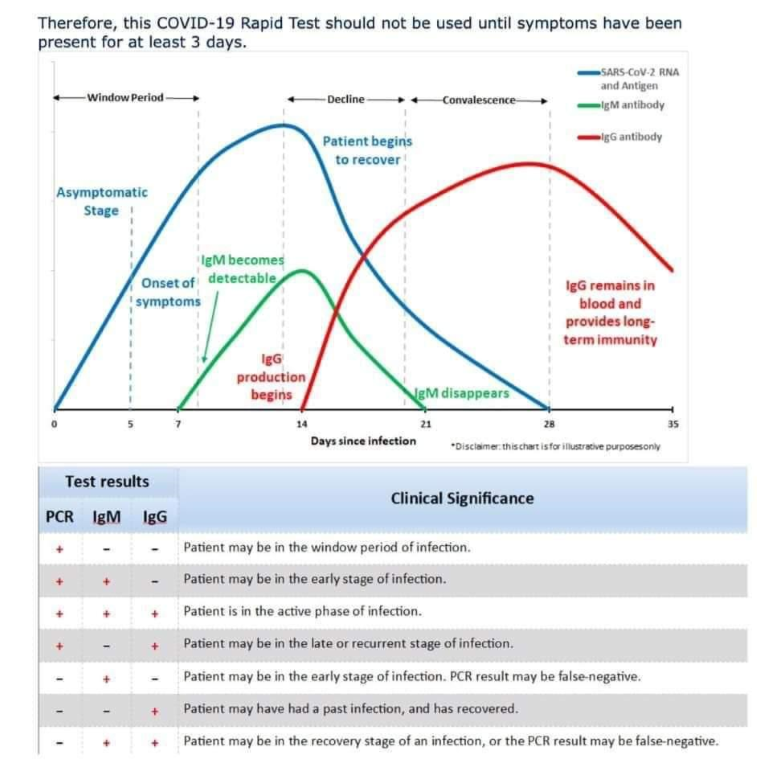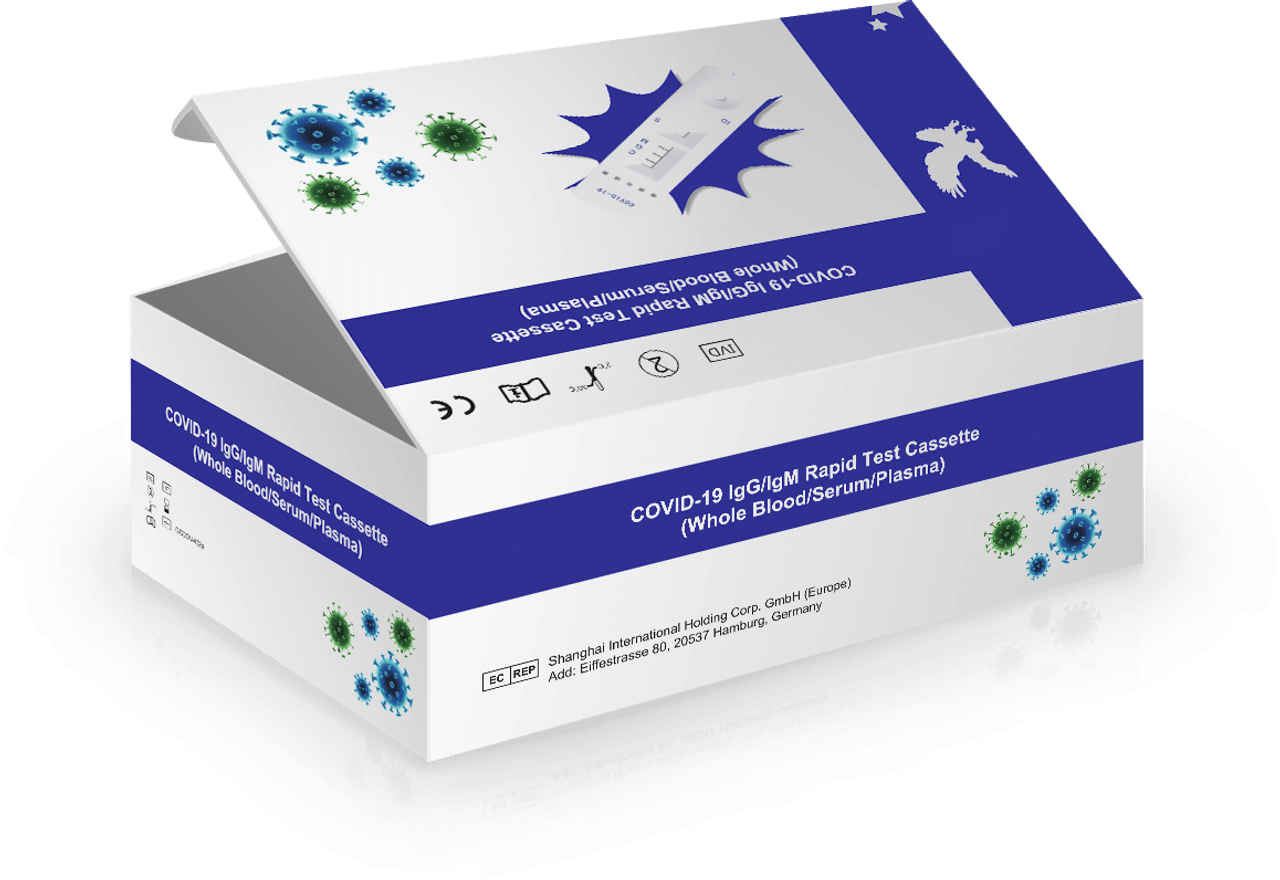To meet the newly announced goal of 100,000 daily tests, the FDA has granted its first approval to IgG/IgM antibody testing.
This is monumental and will help speed up the testing process from hours and days to just a few minutes.
Our antibody tests give results in under five-minutes, the fastest of any.
We are fielding so many calls for our IgG and IgM serology test kits, we thought it would be helpful to share this FAQ to explain how they work, what they can and cannot do.
Q: How is this test different from the RT-PCR tests that have been used to date?
RT-PCR is a molecular biology test which is done by obtaining a nasal swab to collect a sample and evaluate whether the sample contains the telltale genetic material (RNA) that is found only in SARS-CoV-2 coronavirus.
PCR tests look to answer the question: “Does this person have the coronavirus?”
The serology IgG and IgM test answers the question a little differently.
“Is this person currently fighting, or have they fought the coronavirus”
The test requires drawing a small sample of blood and adding a special buffer to a premade cassette. If a patient has the antibodies that show they are fighting or have fought coronavirus, a maroon line will show up in a matter of minutes.
Q: How accurate are these IgG and IgM antibody test?
The test kits being offered by Stellar Scientific were validated against the gold standard RT-PCR tests and confirmed accurate 98% of the time.
In principle, an antibody test should be more accurate than a PCR test since it reports on the status of the person/patient and not the presence of viral material.
PCR tests can be wrecked easily if precaution is not taken to protect sample integrity as well as many other factors.
Q: What is the difference between IgG and IgM antibody?
If a subject tests positive for IgM this means they are actively fighting the virus whether or not they show symptoms.
Because serology tests are cheap and fast, they will help reduce the spread by identifying people who appear to be fine but should actually be in quarantine so as to not infect other people.
Testing positive for IgG means you have FOUGHT the infection and are now in recovery.
Data is constantly pouring in daily and changing what we know about developing immunity to SARS-CoV-2 Coronavirus.
Its hard to say just yet exactly when someone has fully recovered and is no longer shedding the virus, but in principle, testing positive for IgG means you are recovered.
This chart gives an idea how the illness progresses based on the current understanding of SARS-CoV-2.
The actual duration of any stage could be different, but this is how the body manages the infection.
(We are not the source for this. It was posted in LinkedIN by Dr. Anil Malleshi Betgeri)

Q: Do I need any special equipment to administer this test?
Unlike the RT-PCR tests which require a trained technical staff and tens of thousands of dollars of lab equipment, anyone trained to perform finger-prick tests can do an IgG and IgM antibody test.
You do not need a centrifuge, no thermal cyclers, no nasal swabs, no viral transport media. Nothing
The person performing the test should be dressed in PPE as they are interfacing with potentially infected people.
The tests require some technical dexterity to draw the right amount of blood and administer the drops of blood and buffer to the cassette properly.
Which brings us to the next obvious question:
Q: Can I buy this to test my family at home?
The current position of test manufacturers is: No.
Sales are being made to hospitals, clinics, state and local municipalities who have the ability to set up appropriate test sites with (presumably, if they were not in shortage) the correct PPE to protect test takers.
Q: Are there any drawbacks to this test?
As per the chart above, it takes several days for an infected person to begin producing IgM antibodies.
This means a negative test does not mean the person is not infected, it could be a bit too early.
This is where the RT-PCR tests do a better job since they catch the virus, not the response to infection. But, many testing sites take days to produce results, so there is a trade-off.
Q: Can I test my employees and, if they test positive for IgG, allow them to come back to work?
That is a question for your medical director and the scientific community to answer.
As the distributor we can state the presence of IgG indicates the person is in recovery and may be immune and no longer infectious.
Q: What are the FDA guidelines about these serology tests?
Please visit the FDA website and look under the question: “Q: What serology tests….” for a full review.


